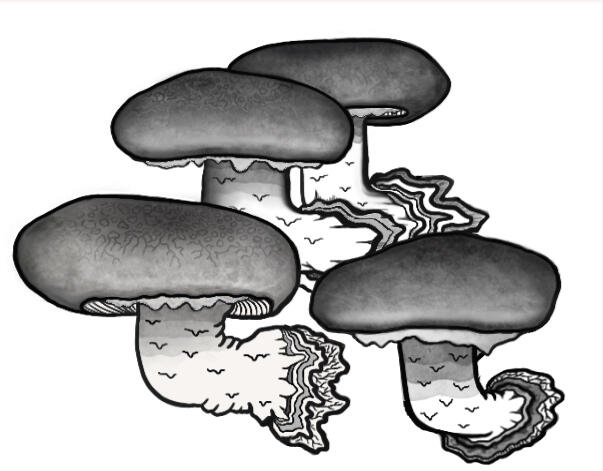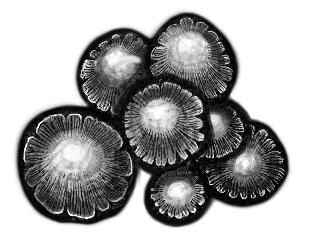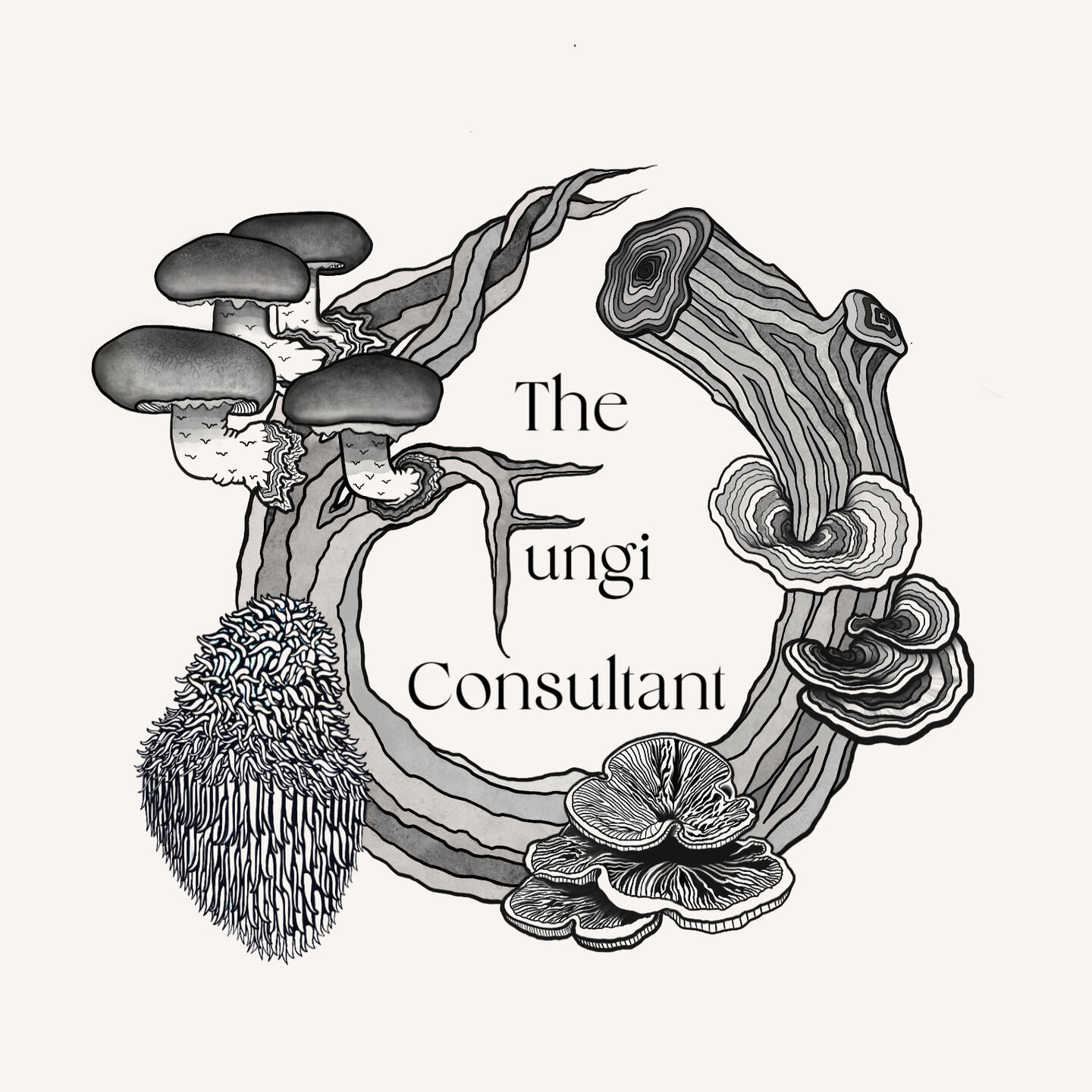
Bridging the gap between fungal wisdom and modern understandings of wellness, our service allows you to incorporate functional mushrooms and natural remedies into your life in the way that works best for you
𓍊𓋼𓍊 The Fungi Consultant ∞ 2024 𓆏
What are functional mushrooms?
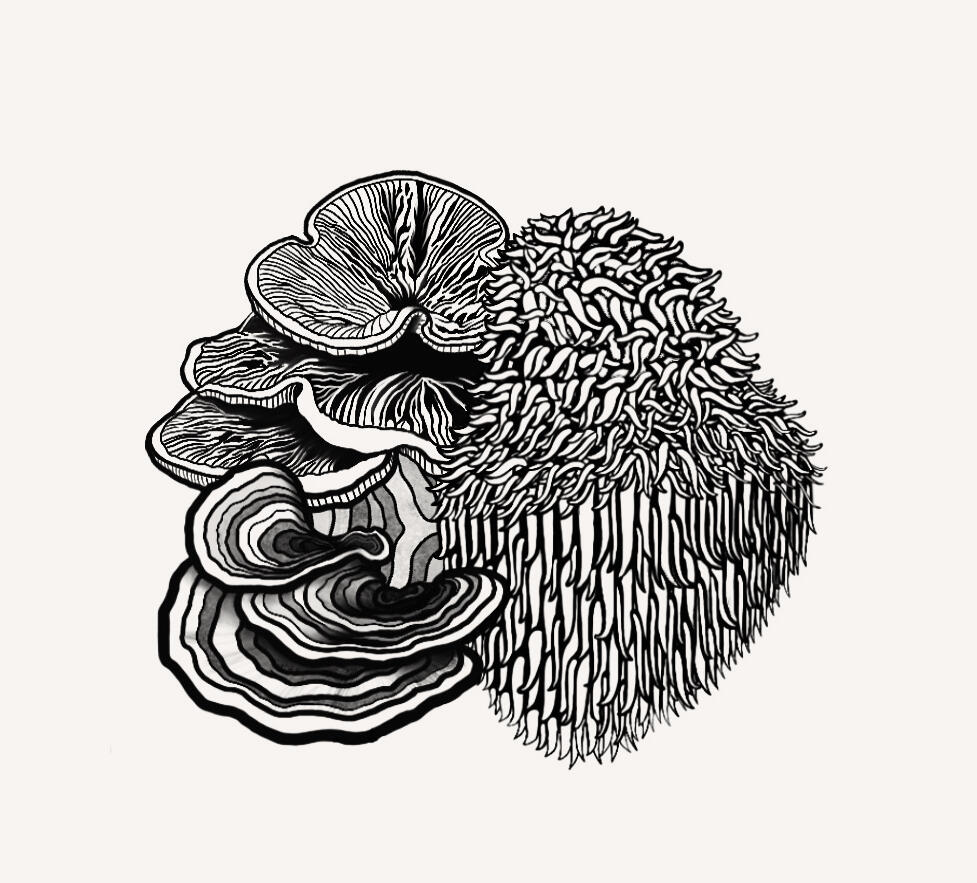
Functional mushrooms have medicinal, nootropic, and adaptogenic properties that enhance cognitive function and improve the body's stress response, offering a natural means to support both our long-term wellness, and our day-to-day comfort and vitality. While varieties like chaga and turkey tail support and strengthen the immune system and reduce oxidative stress over time, other fungi provide immediate boosts to mental clarity and physical performance.
Nootropics (pronounced "no-eh-troh-piks") are substances that enhance cognitive function, memory, and learning, often referred to as “smart drugs”. While synthetic versions are typically prescription-only, natural nootropics are widely available as supplements and herbal extracts.
The term "nootropic" combines two Greek words: nöos (mind) and tropein (to guide). This "mind-guiding" concept reflects their ability to enhance and direct cognitive processes.
While initially studied for cognitive impairment, natural nootropics have gained popularity among healthy individuals seeking to optimize memory and learning capabilities.
The brain requires a disproportionately high percentage of the body's oxygen and blood supply relative to its size. Natural nootropics act as vasodilators in the brain, increasing blood flow to deliver more oxygen, nutrients, and energy.
These compounds provide protection against inflammation and cognitive aging while stimulating the growth of new neurons. This enhancement of neuronal activity contributes to neuroplasticity—the brain's ability to reorganize its connections and functions in response to learning and experiences.
Natural medicines have been used since ancient times to prevent and treat ailments while promoting well-being and longevity. However, the term 'nootropic' only emerged in the early 1970s when Professor Corneliu E. Giurgea described substances that specifically activate cognitive functions involved in memory and learning.
Today, natural nootropics are available as teas, pills, or capsules, and the efficacy of plants and fungi with long histories of traditional use is increasingly being validated by scientific studies.
Adaptogens are plants and fungi that help the body resist various stressors by improving its ability to adapt and maintain balance. Unlike conventional medicines that target specific pathways, adaptogens work through multiple networks, primarily by regulating stress hormones to restore homeostasis.
Adaptogens excel at protecting against stress by helping the body maintain homeostasis—a state of physiological balance. Their ability to mediate stress hormone levels allows the body to better adapt to challenging situations.
These natural compounds provide broader benefits by protecting against chronic inflammation, arterial hardening, neurodegenerative disorders, cognitive impairment, metabolic disorders, cancer, and various age-related diseases.
Regardless of the stressor, adaptogens increase resilience by activating cellular and organ defense systems. Their multi-target mechanisms provide potential benefits for preventing and treating stress-induced disorders.
The range of conditions that may benefit from adaptogenic action is extensive: chronic fatigue, memory impairment, depression, anxiety, sleep disturbances, diabetes, heart disease, high blood pressure, chronic inflammation, autoimmune diseases, infections, skin diseases, liver disorders, and even certain cancers.
The term "adaptogen" first appeared in Soviet literature during the mid-20th century, as researchers sought to understand how these plant compounds help maintain resilience against harmful challenges.
Adaptogenic plants have long been integral to numerous healthcare systems, including Russian and Traditional Chinese Medicine (TCM), Ayurveda, and Kampo (Japanese adaptation of TCM introduced in the 7th century).
Read on to learn a little more about some of the most popular varieties of functional mushroom available!
Lion’s Mane

Reishi
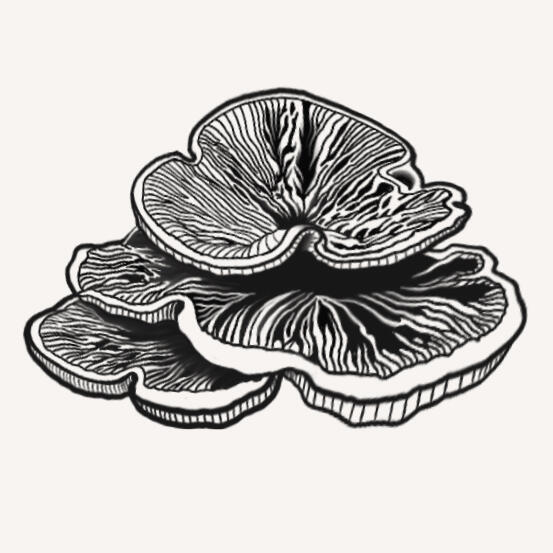
Cordyceps

the above information is adapted from the guide to nootropics and adaptogens by The Fungi Consultant, available at Product Earth.

𓍊𓋼𓍊 The Fungi Consultant ∞ 2024 𓆏
Why choose us?

Oli Genn-Bash, founder of The Fungi Consultant
With so many choices out there, it can be difficult to know what the right option is for our personal health. A calm and informed approach can allow us to identify our needs and the fungi which can support them, and then put these to use in the best way possible.
Whether it's improving cognitive function, allowing us to adapt to stress and feel calmer, and supplying energy for the things we need to do in life; or providing longevity and increased immunity to disease — these fungal allies can support us in elevating our health and wellness, and in overcoming many different challenges.
Having gained extensive knowledge of functional mushrooms, through independent research alongside professional collaboration with individuals and organisations within the fungi world — such as Darren Le Baron, All Things Fungi and the Product Earth natural medicines expo — I offer guidance to those looking to make these natural remedies a part of their daily regime.
From co-founding the University of Kent Canterbury Psychedelic Society in 2009, where I helped facilitate talks on a wide variety of topics including mycology and herbalism to, in more recent years, co-organising multiple cultivation workshops with expert Darren Le Baron, giving talks on the topic of the benefits of mushrooms for All Things Fungi Festival and Sunflower Studio CIC, providing consultations as Head of Mycology at Product Earth, and founding The Fungi Consultant — working with fungi and spreading awareness of these integral sources of wellbeing has been the latest stage in a long journey with functional mushrooms.
My exploration into the world of fungi began as a result of facing various challenges to my health.
As a child and teenager I coped with a lot of injuries, resulting in a few stints in hospital — one of which involved having surgery on my hip at the age of 14. The recovery from surgery made exercise a challenge, and throughout my teenage years I struggled with weight gain due to inactivity, and didn't feel particularly in control of my health.
It wasn't until university, and the discovery of locally growing mushrooms near to my campus, that my mind was opened up to the natural world, allowing me to enjoy being active again in nature. This led me to explore the world of fungi in greater detail, where I gained first hand knowledge surrounding the benefits of a range of functional mushrooms.
In 2016 I received a diagnosis of fibromyalgia. Since then I have tried many different herbal supplements, as well as prescribed pharmaceutical medication. Functional mushrooms such as lion's mane, reishi, and cordyceps became a solid part of my regime, providing benefits that other treatments could not.
As I have dived deeper into studying these mushrooms, sharing my insights has allowed me to appreciate the improvements they can make to other people's lives, conditions and challenges. Particularly given the huge number of products available, which can often make things overwhelming when we're deciding what to buy, I feel that my wealth of experience needs to be shared, empowering others to benefit from the best possible application of functional mushrooms to their lives.

𓍊𓋼𓍊 The Fungi Consultant ∞ 2024 𓆏
Book a Consultation
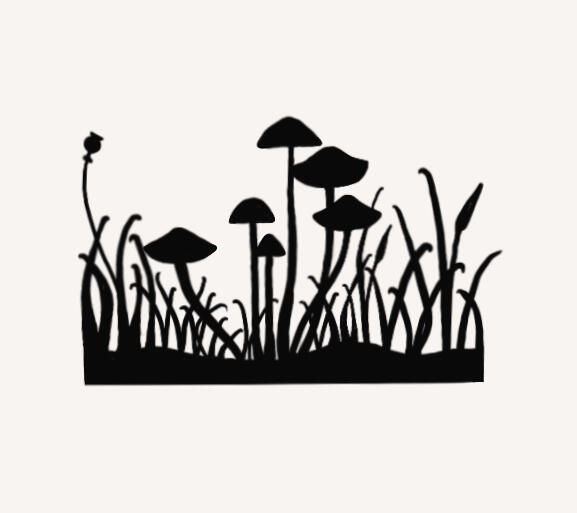
Whether you're new to functional mushrooms or looking to enhance your health routine, my personalised one-on-one consultation provides tailored advice to suit your specific needs
- Discuss your health goals and any supplements already being taken
- Explore the potential benefits of various functional mushrooms based on your individual needs
- Offer guidance on how to incorporate functional mushrooms into your lifestyle, including dosage, product recommendations, and preparation methods
- Provide practical advice on reputable brands and products, ensuring quality and effectiveness
We will…
I will…
Price: £50 per hour for individual online consultations
Email [email protected] or use the form below to arrange a consultation - or a free 15-minute discovery call to answer any preliminary questions and outline how a full consultation can benefit you
If you are a business or organisation and interested in finding out how functional mushrooms can best support your team please get in touch

𓍊𓋼𓍊 The Fungi Consultant ∞ 2024 𓆏
Testimonials
What our customers have said about their experiences with The Fungi Consultant…

𓍊𓋼𓍊 The Fungi Consultant ∞ 2024 𓆏
Mycomastery:
The Functional Mushroom Buyer’s Toolkit
by The Fungi Consultant
Your essential toolkit to navigating the growing functional mushroom market. Whether you're new to functional mushrooms or looking to make more informed purchasing decisions, this comprehensive digital resource equips you with the knowledge needed to choose high-quality, effective products with confidence.
- Key Mushroom Profiles: Detailed insights into mushrooms such as Lion's Mane, Reishi, Turkey Tail, Cordyceps, Chaga, and Shiitake – their benefits, traditional uses, and the latest scientific research.
- Quality Checklists: Learn how to identify premium supplements by understanding lab testing, extraction methods, and standardisation.
- Practical Guidance: Tips on dosage, potential side effects, and how to effectively integrate functional mushrooms into your daily routine.
- Avoid Low-Quality Products: Spot misleading claims and poor-quality supplements with ease.
The functional mushroom industry is expanding rapidly, but misinformation, low potency products, and confusing labelling are common. This guide cuts through the noise, helping you make smarter choices and maximise the benefits of functional mushrooms for your health and wellbeing.
Instant Digital Download – access the toolkit immediately and start making informed decisions today.
Perfect for:
- Wellness enthusiasts exploring functional mushrooms
- Healthcare practitioners seeking reliable information
- Supplement buyers looking for trusted guidance
Invest in your health with Mycomastery – your trusted guide to functional mushrooms.
You will get a PDF (18MB) file

𓍊𓋼𓍊 The Fungi Consultant ∞ 2024 𓆏
Podcast Appearances
Explore my recent conversations on all different aspects of functional mushrooms, regularly updated with new podcast appearances
Get in touch if you're interested in having The Fungi Consultant on your podcast

𓍊𓋼𓍊 The Fungi Consultant ∞ 2024 𓆏

